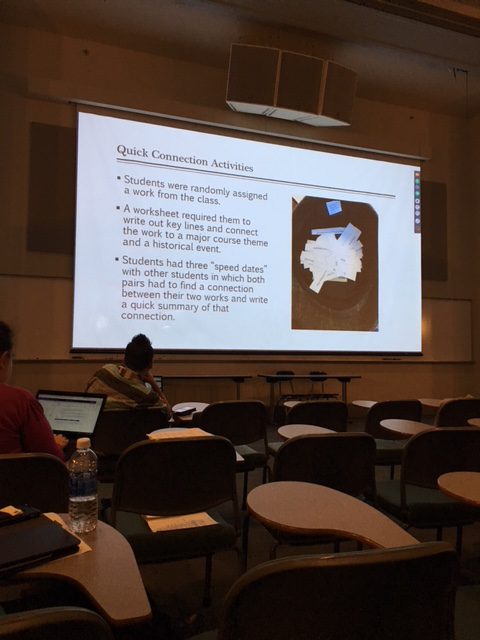Jim Lang shared small, powerful changes you can make in your teaching that are grounded in learning sciences during a lunch and workshop (in person and virtual) on November 16th at Wentworth. Access a recording of the “Small Teaching Workshop” and take a brief feedback survey to share your feedback and ideas for future topics and speakers.
Retrieval Practices help students practice retrieving information which improves memory skills (p.21):
- Ask questions about material covered already
- Give frequent, low-stakes quizzes
- Close class by asking students to write down the most important concept from that day and one question or confusion
- Use your syllabus to redirect students to previous course content through quizzes or oral questions and discussion.
- Tell them what the research says about the value of quizzing and retrieval practice and about your decision to use it.
Connecting Practices “A simple way of understanding how to build comprehension in our students would be that it consists of helping them forge rich, interconnected networks of knowledge – ones that enable each existing piece of information in our content area to connect with lots of other information, concepts, and ideas”…“we want to facilitate the process of students making connections.” (p.97)
- Assess student’s current state of knowledge
- Ask students what they’d like to learn over the course of the semester, 3 questions
- Engage students with concepts maps and the minute thesis
- Provide a framework that facilitate connections
Motivating The deepest learning happens when the learner cares about the learning itself…the extent to which the learning or subject seems important to the learner and will lead to a positive outcome. (p.169).
- Consider emotions as a force to give students frequent motivational boosts, capture their attention
- Infuse learning with a sense of purpose, connect learning with making the world a better place
- Foster social relationships and community that play an essential role in motivation
- Show your passion for your subject, it’s contagious, tell great stories
- Connect with students through casual conversation and paying attention to students





